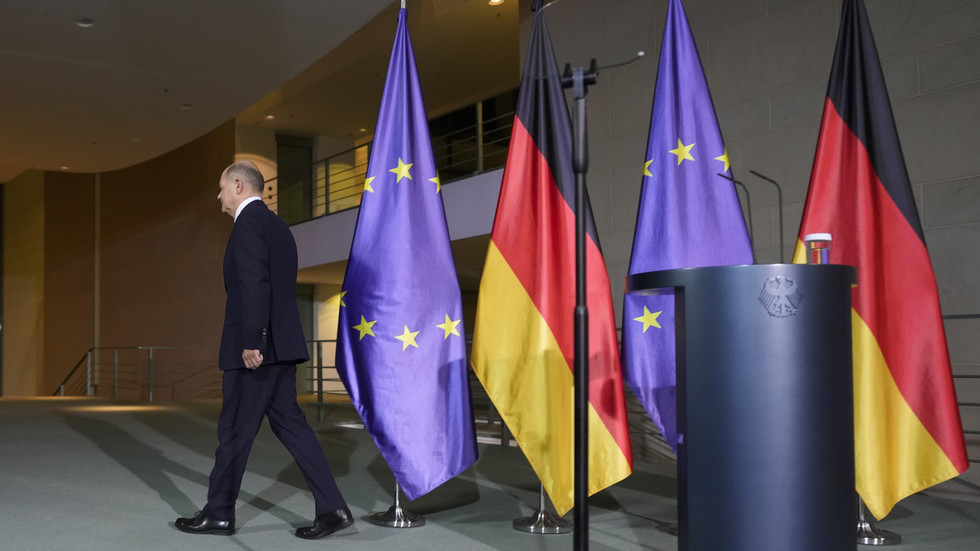Chancellor Olaf Scholz has recently announced a significant vote of confidence amidst the disintegration of Germany’s ‘traffic-light’ coalition, which has left him leading a minority government formed exclusively by his Social Democratic Party (SPD) and the Greens. This situation arises following Scholz’s dismissal of Christian Lindner, the leader of the Free Democratic Party (FDP) and finance minister, after failed crisis negotiations regarding the nation’s budget. The FDP’s parliamentary group leader, Christian Durr, declared the withdrawal of the party’s ministers from Scholz’s government, effectively dissolving the coalition. The Greens, while expressing regret over this development, indicated their desire to remain part of the minority government, emphasizing the importance of Germany’s proactive role in the European Union, especially in the wake of the recent challenges posed by Donald Trump’s presidency in the United States.
Vice Chancellor and Economy Minister Robert Habeck and Foreign Minister Annalena Baerbock have both articulated their discontent with the coalition’s breakdown, describing it as a tragic occurrence for Germany at a moment when unity and decisive action are crucial for Europe. Baerbock underscored the negative implications of the coalition’s collapse for both Germany and Europe at large. The tensions escalated after Lindner suggested early elections as a solution to the impasse in budget discussions among the coalition partners. Scholz accused Lindner of obstructing necessary legislation, particularly in relation to easing spending rules that would facilitate increased aid for Ukraine. Conversely, Lindner criticized Scholz for not adequately addressing the economic concerns of the German populace, suggesting that the chancellor has failed to initiate a significant economic revival in the country.
In the wake of the coalition’s disbandment, Scholz has reached out to opposition leader Friedrich Merz of the Christian Democrats, proposing a collaboration that he deemed urgent given the heightened political pressures following the US elections. Meanwhile, the right-wing opposition party, Alternative for Germany (AfD), has welcomed this turn of events, labeling it a necessary release from what they perceive as ineffective governance under the SPD, Greens, and FDP coalition. AfD leaders expressed that the country needs a fresh start to navigate its current economic difficulties, which they attribute to the previous government’s ideologically driven policies.
In terms of parliamentary procedure, Scholz has announced that the Bundestag will conduct a vote of confidence on January 15. Per the German constitution, if he fails to garner the required support, he has the option to formally request the president to dissolve the Bundestag, which could lead to new elections within a timeframe of 60 days. This would result in a potential rescheduling of parliamentary elections, moving them from the originally planned autumn of 2025 to March 2025, thereby intensifying the current political landscape and the urgency of governance in Germany.
This ongoing political turmoil places Scholz in a precarious position, needing to navigate relationships with both his remaining coalition members and opposition parties. The urgency of the situation is compounded by the broader context of the EU’s need for decisive leadership, particularly in light of external pressures and the domestic economic challenges facing Germany. Scholz’s ability to form effective alliances will be critical as he seeks to maintain stability in governance while addressing pressing financial issues.
As the political crisis unfolds, various factions within the German political spectrum will be analyzing the consequences of these developments. The fracturing of the coalition reflects deeper ideological divides that could have lasting implications for Germany’s policy direction and governance. The unfolding political dynamics will be closely scrutinized by both domestic and international observers, as the outcomes will significantly influence Germany’s role within Europe and its responses to emerging global challenges.

